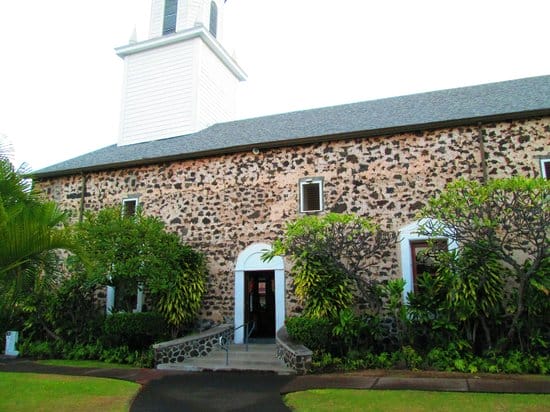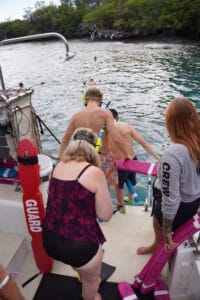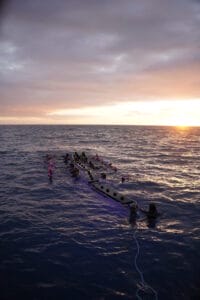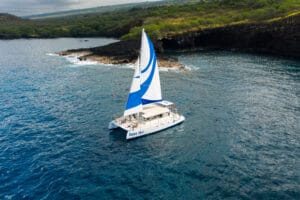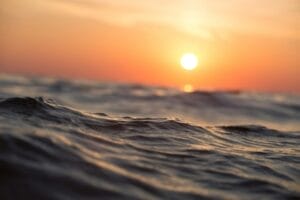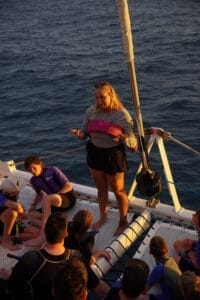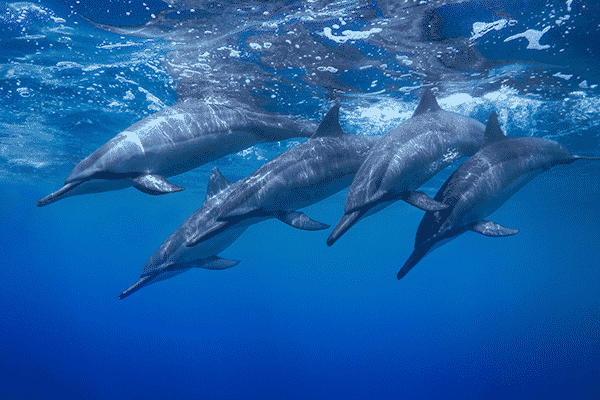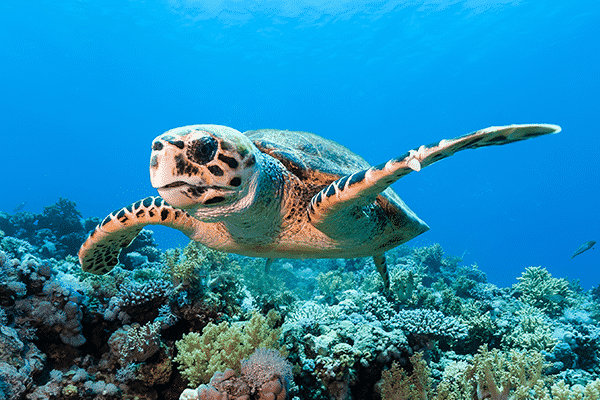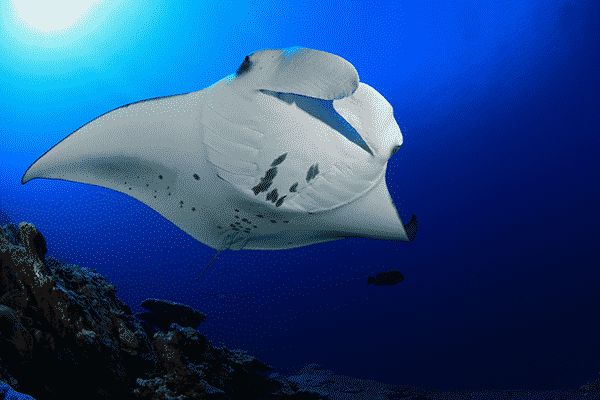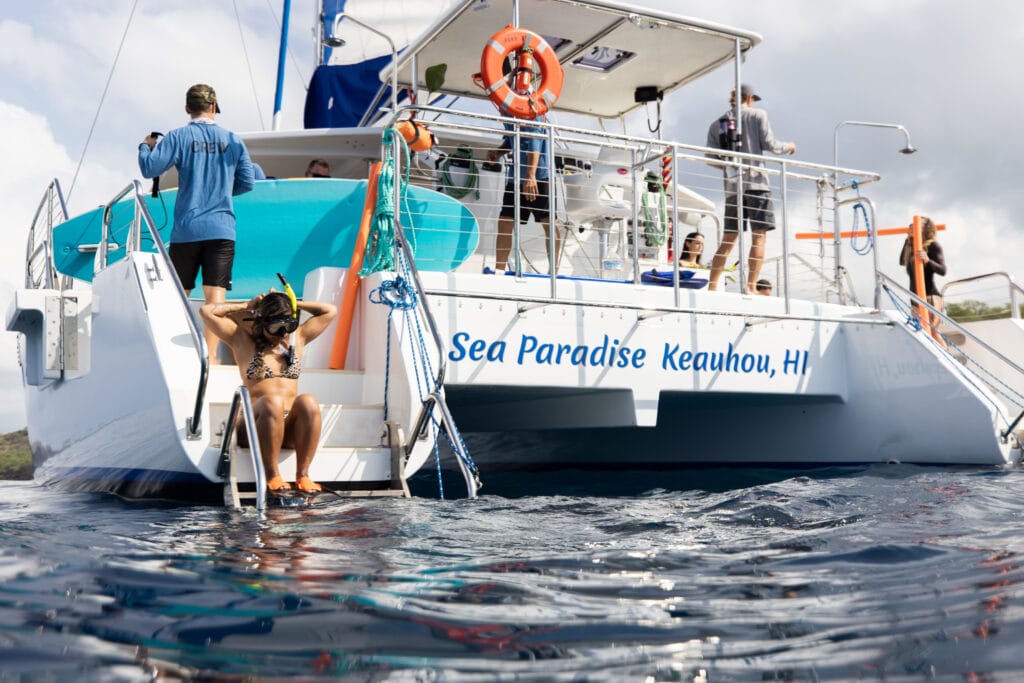My Hawaii Hostel on 5 reasons why the Big Island is the best of the Hawaiian islands. Our snorkel and manta ray tours is one big reason the Big Island is the best. Join us and our amazing crew for the best snorkel or manta ray tour on the Big Island.
Ok, we may be just a little bit biased. But for real, Big Island is pretty freaking awesome! Read on to find out why Hawaii Island has captured our hearts and why it should be at the top of every traveler’s bucket list for the Pacific.
1. IT’S THE BIGGEST!
At over 4,000 square miles in size, the Big Island is, well, BIG! That means there’s more to see, do, and experience here – especially when it comes to outdoor activities and sights than on other islands. Because of its size and relatively small population, the Big Island feels less crowded and more like an adventure.
Its massive size lends itself to an incredible diversity of landscapes and climates, from lush jungles and cascading waterfalls to high mountains, white sandy beaches, and dramatic volcanic landscapes with lava flows for as far as the eye can see. If you are moved by beautiful and otherworldly natural landscapes, the Big Island is the island for you.
2. THE BLUUUUEST WATER
Kona’s crystal clear, brilliantly blue water is recognized as some of the most beautiful in the world. Beneath the waves, lies a geologically young reef that is very close to shore, offering incredible visibility and accessibility for diving and snorkeling. Kona coast beaches are world class, with several located a short walk or bike ride from My Hawaii Hostel. On the island, there are white sand, grey sand, black sand, and even green sand beaches to explore!
In the winter time, Humpback whales visit the Kona and Kohala coastline during their annual migration. While most certainly the largest, they are by no means the only creatures who call these waters home. Kona’s waters teem with life, including sea turtles, dolphins, octopus, and dozens of species of colorful reef fish, as well as deep water fish like Tuna and Marlin. It is not uncommon to spot dolphins frolicking offshore while you are swimming, or to accidentally bump into a sea turtle who is enjoying a bit of body surfing alongside you. While sea life is present all around the island, the amazing clarity of Kona’s water makes these critters easy to see.
3. LEGENDARY VOLCANOES
While all Hawaiian Islands have a volcanic history, the Big Island is known for its extremely active volcano – Kilauea, which is located within Hawaii Volcanoes National Park. Kilauea made news around the world during its massive eruption in the summer of 2018. Hundreds of homes and businesses were lost on the southeast side of the island, as incredible images of Pele’s power and destruction were captured by photographers. Pele is the Hawaiian Volcano Goddess and her lava flows can be seen all over the Big Island.
The Big Island is formed by 6 different volcanoes – in order of oldest to youngest – Mahukona, Kohala, Mauna Kea, Hualalai, Mauna Loa, and Kilauea. The last three are still active. Mauna Kea, the tallest sea mountain in the world, is a deeply sacred site in the Hawaiian culture. It is part of the Hawaiian creation story and is still used today by Hawaiian cultural practitioners.
From its summit, home to the 2nd and 3rd largest telescopes in the world, spectacular star gazing as well as sunrise and sunset views are to be had. In the winter time, snow falls transform its peak into a Hawaiian winter wonderland, with locals taking to the slopes to make snowmen and to go sledding.
Hualalai Volcano, which towers about Kona town, last erupted in 1801. Flying into Kona International Airport, you can see miles of lava flows from Hualalai, running all the way to the ocean. The sea of black rock is a stunning sight to behold from the airplane window. It makes a stark juxtaposition to the crescent shaped white sand beaches, palm trees, and aquamarine water – little oases that were somehow spared Pele’s wrath along the coast.
The fertile volcanic soil on the slopes of Hualalai is favored by generations of coffee farmers – the origin point for world famous Kona Coffee.
4. HISTORY, HISTORY, HISTORY
The Big Island is home to some very well preserved historic sites, including numerous Heiau (ancient Hawaiian temples), petroglyph fields, museums and two national historical parks. As mentioned in detail in our blog post 8 Fascinating Historic & Cultural Sites, the Kona area is home to many of these special places. The historic Hulihe’e Palace, which has been converted into a museum with artifacts, furniture, and clothing from the Hawaiian royal family stands on Ali’i Drive.
Historic side note – did you know that King Kamehameha the Great, the first ruler to unite the Hawaiian Islands into a single Kingdom – was born on the Big Island?
Or that Kealakekua Bay is where explorer Captain James Cook set foot on the Hawaiian Islands in 1779…and later met a tragic end?
5. EASY TO NAVIGATE
There are essentially two directions on the Big Island, Mauka, (toward the mountain) and Makai (toward the sea). One main highway circles the entire island, with a second major coastal section of highway beginning in Kona and running all the way north along the Kona and Kohala Coast to the remote northern tip, where it finally dead ends at Pololū Valley.
Another highway, popularly called Saddle Road, traverses across the mountainous interior of the island, connecting the two main population centers of the island, Kona and Hilo. This stunning 50 mile drive climbs to 6,632 ft. in elevation with spectacular views of Hualalai, Mauna Kea, and Mauna Loa volcanoes.
This being said, it’s fairly hard to get lost, unless you go bushwhacking, of course! (Although there are many excellent hikes on the island!) There are not that many roads and due to the dramatic, mountainous landscape that slopes toward the sea, it’s easy to orient yourself. The Big Island’s “highways” are not anything like mainland freeways, or even Oahu’s busy multilane affairs. Most highways are two lane roads, with a second lane added in here and there on newer stretches along the Kona coast. Its winding, country roads are scenic and ideal for joy riding, as long as you aren’t in a hurry!
Being a largely rural island, people tend to be more laid back and friendly here. Most locals and residents are happy to give directions, talk story, or give a recommendation, as long as you are respectful, kind, and not trespassing on their property.

